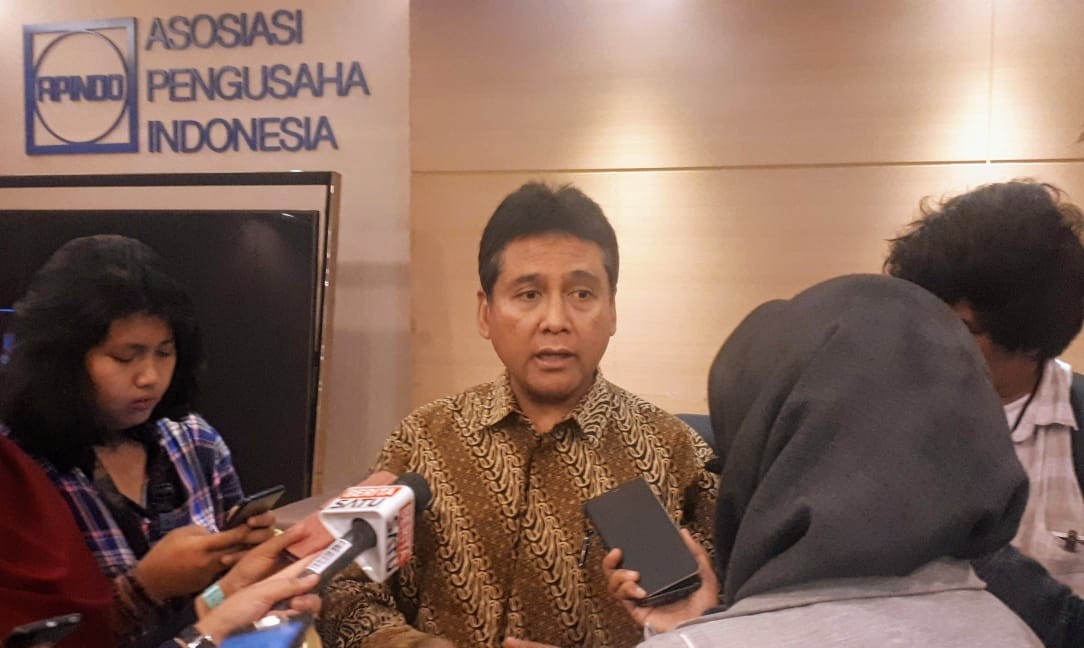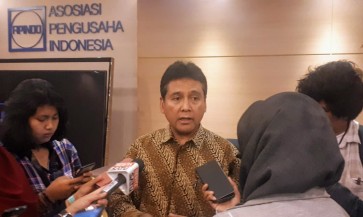Popular Reads
Top Results
Can't find what you're looking for?
View all search resultsPopular Reads
Top Results
Can't find what you're looking for?
View all search resultsEmployers seek to defend jobs law amid public outcry
Last week, the House said the draft agreed upon in the Oct. 5 plenary session and circulated among journalists was not, in fact, the final draft of the law, further obfuscating the already opaque legislative process.
Change text size
Gift Premium Articles
to Anyone
B
usinesspeople have sought to defend the recently passed Job Creation Law days after 11 ministers did so, claiming that the regulation will uphold labor rights and will address high labor costs and productivity issues.
Indonesian Employer Association (Apindo) chair Hariyadi Sukamdani said on Friday that issues preventing businesses from employing more people formed the background of the drafting and deliberation of the omnibus law. He said the legislation aimed to redress a long-term decline in employment.
“In the span of 17 years since Law No. 13/2003 on labor was passed, a significant decline in employment has taken place,” he said in a virtual discussion held by the association. “This is in contrast to the growth of our workforce, which has increased by more than 2 million people every year.”
From February 2019 to February of this year, 1.73 million Indonesians entered the workforce, bringing the nation’s total to 137.91 million. Over the same period, 1.67 million people gained employment, Statistics Indonesia (BPS) data shows.
The country’s unemployment rate was 4.99 percent in February of this year, slightly lower than the 5.01 percent unemployment rate in the same month the year before. Indonesia’s unemployment rate steadily declined from 5.94 percent in August 2014 – a few months before President Joko “Jokowi” Widodo took office – to the figure in February of this year.
On Thursday, 11 ministers defended the controversial law as public protests raged over provisions that labor unions said could jeopardize labor rights and encourage easy hiring and firing. The ministers also sought to defend the deliberation of the law, which experts and activists say lacked transparency and public debate.
The government hopes the omnibus law, which has altered more than 79 previous laws and eliminated thousands of provisions, will boost investment and create jobs in the country. The law regulates a variety of processes and institutions, from labor and business licensing to education and sovereign wealth funds.


















